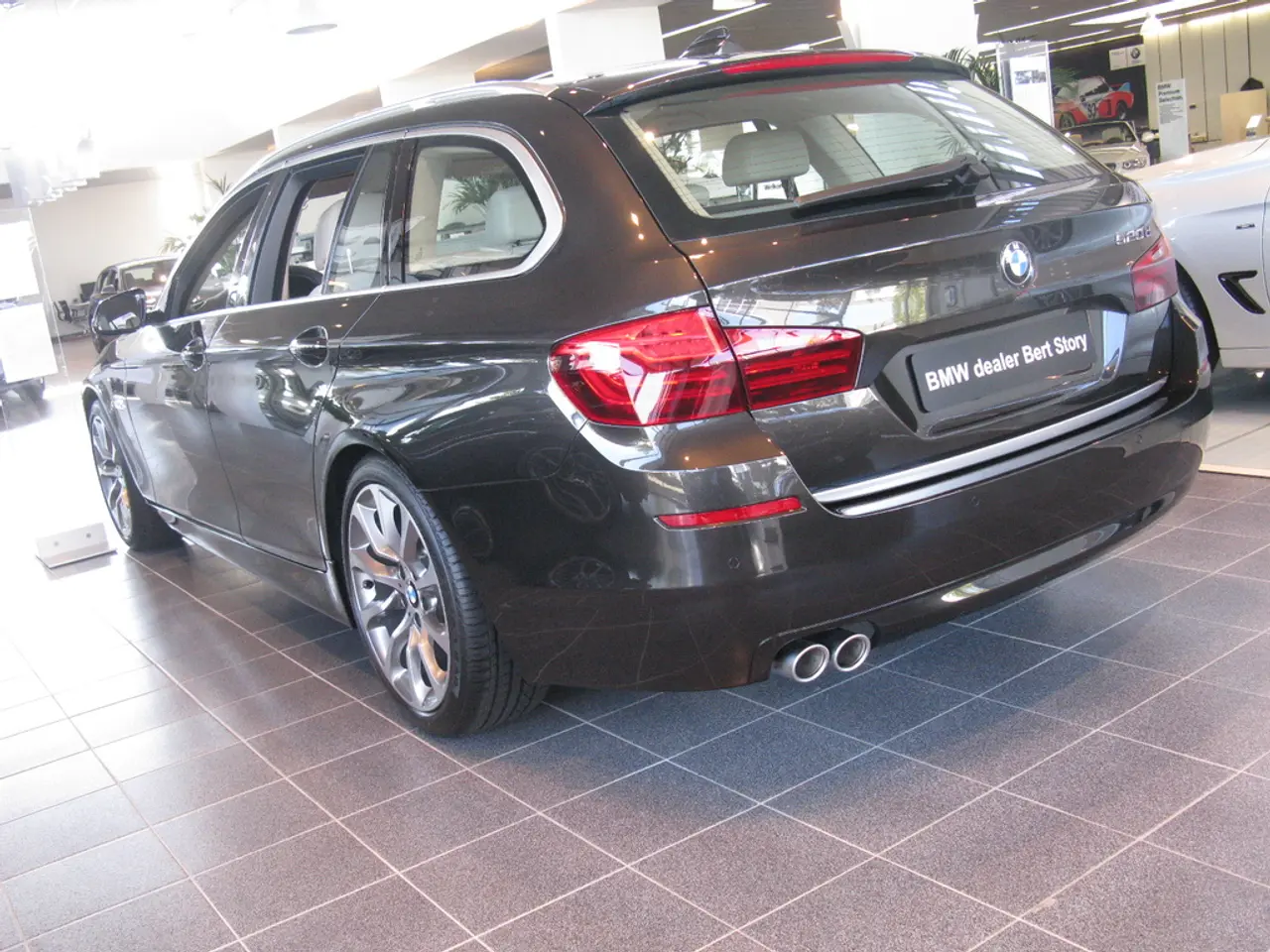Repurposed Battery Electric Vehicles Propelling Europe's Climate Ambitions
Electrification of the Used Car Market Gains Momentum
The adoption rate of electric vehicles (EVs) by leasing companies is playing a crucial role in the pace of electrification in the used car sector, according to a new report by Transport & Environment (T&E). This shift could have a significant impact on the future of sustainable mobility in Europe.
Operating costs for battery electric vehicles (BEVs) are lower than those for Internal Combustion Engine (ICE) vehicles due to their fewer moving parts and lower maintenance requirements. Studies have consistently found that EVs have a lower total cost of ownership (TCO) than their petrol counterparts.
The T&E report predicts that if major leasing companies switch to 100% electric by 2028 and the sector follows by 2030, an additional 18 million BEVs could enter the used car market by 2035. This increased electrification could make electric cars more affordable, with millions of these vehicles projected to be priced under €10,000.
Germany and France are predicted to lead in potential cost reductions for used BEVs, thanks in part to the expanding charging infrastructure in these countries. Tax incentives and government subsidies further contribute to making BEVs a financially sensible choice.
The average battery capacity degradation of BEVs is 2.3% per year, reinforcing their longevity and reliability. This, combined with lower operating costs, makes EVs an attractive option for both leasing companies and consumers.
However, none of the top leasing firms have yet declared a commitment to eliminate fossil fuel cars from their fleets. Loxam, a leading European leasing company for equipment and tools, has committed to gradually removing fossil-fuel-powered vehicles from its fleet by 2030, with substantial investments to electrify and decarbonize its fleet.
The T&E briefing calls for leasing firms to phase out fossil fuel vehicles by 2028 and for policy reforms such as increased taxation on fossil fuel cars and binding electrification targets for corporate fleets by 2030. The report emphasizes the significant role of used BEVs in meeting the EU's 2040 climate goals.
The second-hand car market is a significant focus in the green transformation, as eight in ten EU citizens purchase their cars second-hand. The electrification of the used car market holds the key to making sustainable mobility accessible and affordable for European citizens.
As the used car market increasingly moves towards electrification, concerns about range and accessibility for EVs are being eased by the expanding charging infrastructure across Europe. Lower initial purchase prices for BEVs also result from the significant depreciation new cars face in the first few years.
In conclusion, the T&E report underscores the importance of leasing companies in driving the electrification of the used car market. With the right policy incentives and commitments from leasing firms, Europe could be on track to a greener, more sustainable future.








